Tom Stafford's Blog, page 124
September 21, 2010
Rare footage of physical treatments in psychiatry, 1957
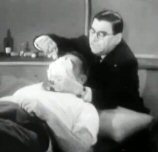 I've just found a remarkable documentary on YouTube from a 1957 BBC series called 'The Hurt Mind'. The programme attempts to de-stigmatise mental health for the public but also documents some of the most controversial treatments in the history of psychiatry.
I've just found a remarkable documentary on YouTube from a 1957 BBC series called 'The Hurt Mind'. The programme attempts to de-stigmatise mental health for the public but also documents some of the most controversial treatments in the history of psychiatry.
The programme was an edition of a then pioneering five-part BBC series on mental health and this was one that specifically dealt with 'physical treatments' – that is, treatments which directly affect the brain, such as ECT, leucotomy,
Sci vs Spy
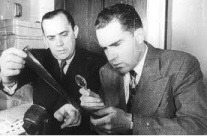 The Cold War espionage styles of the US and Soviet spy agencies are compared in a fantastic article for the history of science journal Isis that notes that while the Americans tended to invest in technology, the Russians were more focused on 'human intelligence'.
The Cold War espionage styles of the US and Soviet spy agencies are compared in a fantastic article for the history of science journal Isis that notes that while the Americans tended to invest in technology, the Russians were more focused on 'human intelligence'.
The article, by historian Kristie Macrakis, explores the technophilia of the CIA in contrast to the KGB's emphasis on getting spies on the ground and how these contrasting styles played out in many (now infamous) incidents.
Soviet and...
September 20, 2010
The book of reality distortions
 I'm happy to announce that I've just finalised an agreement with Penguin to write a book on what hallucinations tell us about the mind, brain and human nature. From the proposal:
I'm happy to announce that I've just finalised an agreement with Penguin to write a book on what hallucinations tell us about the mind, brain and human nature. From the proposal:
The mind and brain can generate fantastical visions and disembodied voices, illusory people and shifting landscapes, internal symphonies and sensed presences. These states happen at the extremes of human experience, in madness, terror and brain disturbance, but they are often an exaggeration of our natural tendency...
The pleasure is all mine
 Monitor on Psychology has a brief but interesting interview with psychologist Paul Bloom who has just written a book on the counter-intuitive psychology of pleasure.
Monitor on Psychology has a brief but interesting interview with psychologist Paul Bloom who has just written a book on the counter-intuitive psychology of pleasure.
Pleasure, it would seem, is a byproduct of essentialism, Bloom says. The value we assign consumer products is largely based on something deeper than just the way they look or fit or feel. We consider their potentials as status symbols, their individual histories, how much we assume other people think they are worth and so on —...
Dreams of a consciousness measuring device
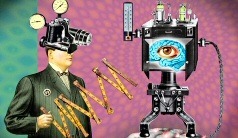 The New York Times has an excellent article about Giulio Tononi, one of the few neuroscientists trying to understand consciousness in a way that may have a direct practical application – to create a medical device that can tell whether you are conscious or not.
The New York Times has an excellent article about Giulio Tononi, one of the few neuroscientists trying to understand consciousness in a way that may have a direct practical application – to create a medical device that can tell whether you are conscious or not.
To be honest, I've been a bit bored with consciousness, not in an existential sense you understand, but in terms of the science which tends towards tinkering with interesting but possibly inconsequential effects.
The NYT article...
It's not a date, it's an experiment in the lab of love
 There's a fantastic discussion on the science of dating over at Dr Petra that tackles how effective the techniques used by 'scientific matching' companies really are, and whether common dating advice is actually any good.
There's a fantastic discussion on the science of dating over at Dr Petra that tackles how effective the techniques used by 'scientific matching' companies really are, and whether common dating advice is actually any good.
Petra recently ran a 'Science of Pulling' event at the British Science Festival (Americans: 'pull' is British slang meaning 'to gently woo') where she covered everything from how researchers actually go about studying couples to the myths of dating advice – in light of the...
September 19, 2010
Memories from before nightfall
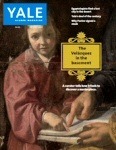 The Yale Alumni Magazine has a moving and beautifully written article that is both a tribute to a college friend who recently took his own life and a wider discussion of depression, suicide and friendship.
The Yale Alumni Magazine has a moving and beautifully written article that is both a tribute to a college friend who recently took his own life and a wider discussion of depression, suicide and friendship.
The writer is Andrew Solomon, perhaps best known for one of the finest books on the experience, meaning and science of depression – 'The Noonday Demon' – and this latest article follows in his honest and subtly powerful style.
There's not a lot I can say that would do the piece justice...
New mental states for the 21st century
 Writer Douglas Coupland has a playful article in the The Independent where he defines 'new terms for new sensations' and lists new psychological states that may be arising from 21st century life.
Writer Douglas Coupland has a playful article in the The Independent where he defines 'new terms for new sensations' and lists new psychological states that may be arising from 21st century life.
Coupland is known for his careful observations of how technology impacts on day-to-day living and there are many delightful entries in the list, but a few of my favourites are below:
Deselfing: Willingly diluting one's sense of self and ego by plastering the internet with as much information as...
September 18, 2010
The strange-face-in-the-mirror illusion
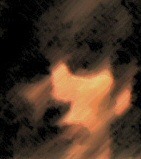 An intriguing article has just been published in the journal Perception about a never-before-described visual illusion where your own reflection in the mirror seems to become distorted and shifts identity.
An intriguing article has just been published in the journal Perception about a never-before-described visual illusion where your own reflection in the mirror seems to become distorted and shifts identity.
To trigger the illusion you need to stare at your own reflection in a dimly lit room. The author, Italian psychologist Giovanni Caputo, describes his set up which seems to reliably trigger the illusion: you need a room lit only by a dim lamp (he suggests a 25W bulb) that is placed behind...
2010-09-17 Spike activity
Quick links from the past week in mind and brain news:
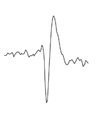
There's a fantastic discussion and video interview on America's first prison for drug addicts, "the world's most famous – and infamous – center for the treatment and study of drug addiction", over at Neuroanthropology.
The Guardian has a piece by psychologist Susan Blackmore on why she's changed her mind on the idea that religion works like a 'meme virus'.
How political beliefs affect racial biases. Neuron Culture covers an intriguing study ...
Tom Stafford's Blog
- Tom Stafford's profile
- 13 followers



